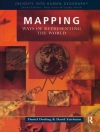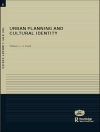Geographic Information Systems are an essential tool for analyzing and representing quantitative spatial data. Qualitative GIS explains the recent integration of qualitative research with Geographical Information Systems
With a detailed contextualising introduction, the text is organised in three sections:
Representation: examines how researchers are using GIS to create new types of representations; working with spatial data, maps, and othervisualizations to incorporate multiple meanings and to provide texture and context.
Analysis: discusses the new techniques of analysis that are emerging at the margins between qualitative research and GIS, this in the wider context of a critical review of mixed-methods in geographical research
Theory: questions how knowledge is produced, showing how ideas of ′science′ and ′truth′ inform research, and demonstrates how qualitative GIS can be used to interrogate discussions of power, community, and social action
Making reference to representation, analysis, and theory throughout, the text shows how to frame questions, collect data, analyze results, and represent findings in a truly integrated way. An important addition to the mixed methods literature, Qualitative GIS will be the standard reference for upper-level students and researchers using qualitative methods and Geographic Information Systems.
Spis treści
Introduction: Qualitative GIS: Forging mixed methods through representations, analytical innovations, and conceptual engagements – Sarah Elwood and Meghan Cope
Non-quantitative GIS – Marianna Pavlovskaya
PART ONE: REPRESENTATIONS
Metadata as a site for imbuing GIS with qualitative information – Nadine Schuurman
Multiple representations, significations, and epistemologies in community-based GIS – Sarah Elwood
Geographic information technologies, local knowledge, and change – Jon Corbett and Giacomo Rambaldi
PART TWO: ANALYTICAL INTERVENTIONS AND INNOVATIONS
Grounded Visualization and scale: A recursive analysis of community spaces – La Dona Knigge and Meghan Cope
Computer-Aided Qualitative GIS: A software-level integration of qualitative research and GIS – Jin-Kyu Jung
PART THREE: CONCEPTUAL ENGAGEMENTS
Affective visual geographies and GIScience – Stuart Aitken and Jim Craine
Towards a genealogy of qualitative GIS – Matthew W Wilson
Conclusion: For Qualitative GIS – Meghan Cope and Sarah Elwood
O autorze
Sarah Elwood is a professor of geography at University of Washington and cofounder of the Relational Poverty Network with Victoria Lawson. Her research contributes to relational poverty studies, critical GIScience and digital geographies, visual politics and mixed methods, and urban geography. Current activities include research on poverty politics of creative activisms around homelessness, feminist and critical race theorizations of digital geographies, and a collaborative public scholarly project on horizons of critical poverty studies under emerging national populisms. She is the coeditor of Relational Poverty Politics (University of Georgia Press, 2018), Crowdsourcing Geographic Knowledge (Springer, 2012) and Qualitative GIS (SAGE, 2009) and author of journal articles in Progress in Human Geography, Annals of the Association of American Geographers, International Journal of Geographic Information Science, and others. She holds an MA and Ph D in geography from the University of Minnesota and a BA in Geography from Macalester College.












